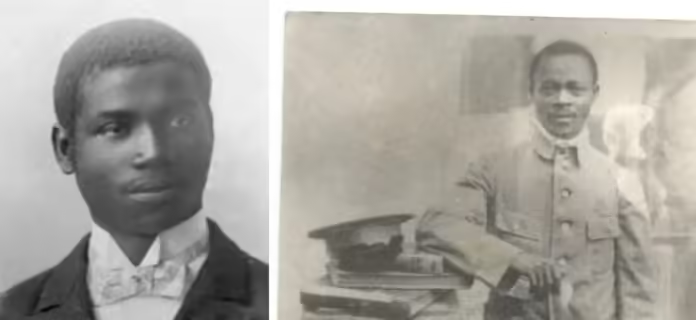On the solemn occasion marking the 110th anniversary of the deaths of King Rudolf Douala Manga Bell and Adolf Ngoso Din of Cameroon, German Minister of State Katja Keul issued a poignant statement acknowledging the innocence and unjust execution of these prominent Cameroonian leaders by the German colonial administration.
“King Rudolf Douala Manga Bell and Adolf Ngoso Din campaigned peacefully and by legally unobjectionable means against the expropriation and resettlement of their people from their homeland pursued by the German colonial administration,” Minister Keul declared. “The innocence of King Rudolf Douala Manga Bell and Adolf Ngoso Din is beyond dispute. The death sentences imposed upon and carried out against them therefore amount to judicial murder.”
This statement comes two years after Minister Keul’s significant visit to Douala in November 2022, where she gave a speech at the site of the executions. Reflecting on her visit, she said, “I am grateful that the royal family gave me the opportunity to travel to Douala and politically rehabilitate King Rudolf Douala Manga Bell and Adolf Ngoso Din on behalf of the German Government.”
The Minister’s statement underscored the importance of this political rehabilitation, which formally acknowledges the innocence and the injustices faced by Manga Bell and Ngoso Din. “With this political rehabilitation, the German Government acknowledges the innocence of King Rudolf Douala Manga Bell and Adolf Ngoso Din and the injustice they experienced at the hands of the German colonial administration,” she stated.
King Rudolf Douala Manga Bell and Adolf Ngoso Din were prominent figures in the early 20th century who opposed the German colonial administration’s attempts to displace the Douala people from their ancestral lands. Their peaceful resistance included petitions to the German Reichstag. However, on August 8, 1914, they were falsely charged with high treason and executed the same day.
Historical evidence today confirms that these charges were fabricated to quash their effective opposition to colonial policies. Even by the legal standards of the time, the trials of Manga Bell and Ngoso Din were gross miscarriages of justice.
Minister Keul emphasized the need to continue honoring the legacy of these leaders, stating, “In dialogue and cooperation with their descendants, the German Government will continue to work to honor the memory of King Rudolf Douala Manga Bell and Adolf Ngoso Din.”
The German legal system lacks provisions for the legal rehabilitation of such historical cases, making political acknowledgment all the more crucial. The actions and statements of the German Government represent a significant step in addressing historical wrongs and fostering a path toward reconciliation and justice.
Rudolf Duala Manga Bell (1873 – 8 August 1914) was a prominent Duala king and resistance leader in the German colony of Kamerun (now Cameroon). Born into royalty, Manga Bell was well-educated both in Kamerun and Europe, equipping him with a broad perspective and understanding of European political and legal systems. He ascended to the throne on 2 September 1908, following the death of his father, Manga Ndumbe Bell.
Initially, Manga Bell supported the German colonial authorities and styled himself after European rulers. His education and wealth, albeit shadowed by substantial debt inherited from his father, positioned him as a significant figure within the colonial framework.
However, the political landscape shifted dramatically in 1910 when the German Reichstag proposed a plan to relocate the Duala people from their riverside homes to inland areas, making way for European settlements. Manga Bell emerged as the leader of the pan-Duala resistance against this policy. He and other chiefs utilized peaceful means such as letters, petitions, and legal arguments to oppose the plan, but their efforts were consistently ignored or dismissed by the colonial administration.
In a desperate bid to safeguard his people’s land and rights, Manga Bell sought assistance from other European governments and reached out to leaders of other Cameroonian ethnic groups, advocating for a collective resistance against German rule. This outreach, however, led to his downfall when Sultan Ibrahim Njoya of the Bamum people reported his actions to the German authorities.
Manga Bell was arrested, subjected to a summary trial, and hanged for high treason on 8 August 1914. His execution was swift, but his legacy endured, transforming him into a martyr in the eyes of many Cameroonians. His resistance efforts are now seen as an early manifestation of Cameroonian nationalism, a view supported by historians such as Mark W. DeLancey, Mark Dike DeLancey, and Helmuth Stoecker.
 Donate
Donate



